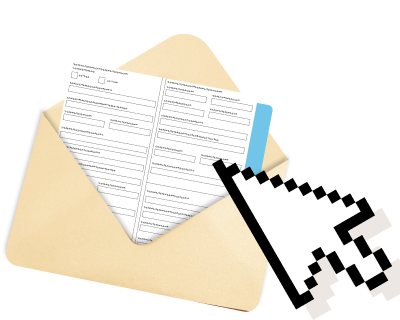Being good at paying bills means planning ahead.
If you make a plan, you’ll know what’s coming up, be able to pay your bills when they’re due, and know how to ask for help when you need it.
61.5%
of Australian households subscribe to at least one video streaming service
Separate essential and non-essential bills
An essential bill is for something you need to meet your everyday living needs.
Bills like rent, water, gas, electricity, and your phone. These bills should be your priority.
Non-essential subscriptions or services can always be cancelled until you have the money available to pay for them.
Things like streaming services, ‘buy now, pay later’, or gaming platforms can be considered non-essential.
If you don’t pay your phone or water bill on time, you might find yourself unable to use your phone or have a hot shower.
Set up a budget and plan how to save money each time you get paid. This will set you up to pay your bills on time and avoid late fees.
Bills don’t go away if you ignore them
Most companies are prepared to accept late bill payments at least once.
If you reach out to them and let them know what’s going on, they will usually understand. The most important thing is to let them know!
If you contact the organisation about a late payment, they may ask you to enter into a payment plan.
This means that they are allowing you to pay the bill in smaller more affordable amounts until it is paid off.
They might decide the amounts and dates to be paid. Or they may ask what is affordable to you.
It’s important to agree on an amount that you can afford. You don’t want to agree to something you still can’t pay.
It’s hard to know how much is ‘normal‘ for different bills.
What to do if you need to share bills
Depending on your living situation you might need to contribute to the cost of bills.
It can be tricky when you have other people all living under one roof, using different amounts of utilities (like your water, electricity, and gas).
If you are living with your mob or family, they might just tell you what they want you to pay. Then you can give them that money each month.
But if you are living in a sharehouse, the easiest and simplest way is to split the bills equally between all the tenants. You can do this in a couple of ways.
Option 1: Joint bank account
One way to do this is to open a joint bank account just for bills. Then to set up a direct debit for each bill from that account.
Everyone pays an equal amount each month, and the bills get automatically paid.
What is direct debit?
An automatic payment that comes out of your bank account. You will often get asked to set one up when you first sign up to a service.
Set up direct debits to ensure you pay bills on time but make sure you have enough money in your account at the time.
Option 2: Use a cost-splitting app or spreadsheet
There are free tools online, such as cost-splitting apps, to keep track of shared expenses between friends. Just search for cost-splitting or bill-splitting tools online.
You could also use a spreadsheet to calculate everyone's expenses.
Overall, everyone needs to share expenses, and bills must be paid on time. So it’s very important to live with people you trust and can communicate with.
Remember:
- Don’t ignore bills you haven’t paid
- Have a plan for how you’re going to pay your bills
- Prioritise important bills
- Set up direct debits where possible

Ready to put your skills into practice?
Get comprehensive guidance on money at Youth Central.






